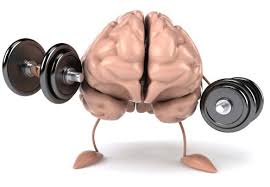08
Nov 2017
By Luke Carlson
Posted in
strength training,
cognitive impairment,
cognitive function,
self esteem,
depression,
cognitive ability,
stress relief,
strength training for mental health
With
NO Comment
Permalink
3 Research-Based Mental Health Benefits of Strength Training (and an amazing music video)
When we discuss the many benefits of strength training, we commonly focus on the physiological benefits: Increased muscle strength, enhanced resting metabolic rate, improved bone mineral density and reduced resting blood pressure to name just a few. The aforementioned benefits are augmented by the equally important psychological benefits associated with strength training. The oft heard and almost clichéd expression, "My workout just makes me feel better" actually has significant scientific credibility. An ever-growing body of research points to three mental health benefits of strength training. Researcher Wayne Westcott Ph.D. recently authored an article examining the mental health benefits of strength training. I have included selected quotes below. This is fascinating:
1. Cognitive ability
- "In an excellent review titled, 'Strength Training as a Countermeasure to Aging Muscle and Chronic Disease,' Hurley, Hanson, and Sheoff described four studies that demonstrated an inverse relationship between muscular strength and mental decline/Alzheimer disease."
- "O'Connor, Herring, and Caravalho's comprehensive review of the mental health benefits of strength training identified four studies that attained significant improvements in memory as a result of resistance exercise."
- "A 2012 study by Nagamatsu and associates actually found resistance exercise to be more effective than aerobic activity for improving mental performance in 70 to 80 year old woman with mild cognitive impairment."
2. Self-Esteem
- "Research has revealed enhanced self-esteem resulting from resistance training among younger adults, older adults, women, and cancer patients."
- "Based on their research review, O'Connor and colleagues concluded that 'strength training alone is associated with improvements in overall self-esteem.'"
3. Depression
- "Strength training alone is associated with both large reductions in symptoms of depression among depressed patients with moderate reductions in depression symptoms among patients with fibromyalgia."
- "More than 90% of the initially depressed elders in the resistance exercise group no longer met the criteria for depression after 10 weeks of training, compared to 40% of those in the health education group over the same time period."
06
Sep 2017
By Luke Carlson
Posted in
cardio,
cognitive function,
bone mineral density,
Atrophy,
athletic Performance,
Metabolic,
Function capacity,
metabolic rate,
self esteem,
depression
With
NO Comment
Permalink
Why Do I Strength Train?
Most people don't know the answer to this question (even people who are self-described fitness fanatics). To be clear, they understand what drew them to strength training in the first place, but they really don't understand the benefits of a properly performed strength-training program. This is true of "beginners" as well as most fitness zealots.
22
Jun 2017
By Luke Carlson
Posted in
Bod Pod,
Weight Loss,
Body Composition,
cardio,
fitness goals,
cognitive function,
bone mineral density
With
NO Comment
Permalink
09
Jun 2017
By Luke Carlson
Posted in
demetia,
cognitive impairment,
cognitive function
With
NO Comment
Permalink
Exercise, Dementia, and Cognitive Impairment
Cognitive decline is one of the most prominent health care concerns of the 21st century. Dementia limits one’s ability to function independently, and independence is a primary component of happiness as we age. A myriad of behavioral interventions are utilized in the management of cognitive decline and research supports physical activity as an efficacious preventive measure for dementia in seniors.






Leave a Reply
Your email address will not be published.